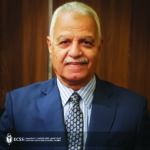Once again, northern Syria takes center stage with the same dynamics that have dominated the scene since 2012. The only variable is that the Islamic State no longer exists in northern Syria, or rather no longer has control over the governorates east of the Euphrates.
However, the engagement dynamics and complexity of events still languish and have regained momentum since Turkey’s connections with the Syrian regime started to take an advanced form, with Russia throwing its weight to dismantle the complexities of this relationship or at least resolve the gridlock between them. This Turkish-Syrian variable has northeastern Syria, the border strip, and areas of pro-Turkey entities and Kurdish concentration as its theater of operation. All of these areas present too many complexities that make it difficult for Ankara and Damascus to build quick consensus on them, even with the pressing Russian presence and mediation.
Interactions of this scene are in the slow-making, despite Erdogan’s willingness for rapprochement, in light of several commitments, including primarily the presidential election that require him to quickly decide on the outstanding files, starting from the Syrian refugees in Turkey to the political entity of the Syrian opposition that Turkey has been representing and speaking for years in Geneva, Astana, and Sochi.
There is also the newly emerging commitment of Turkish mediation between Russia and Ukraine, where Erdogan ardently desires to keep a firm hand on the levers of this mediation after he had managed to broker the Black Sea Grain Initiative that ensures the safe transport of strategic goods from Ukraine to global markets.
Based on the mechanism adopted in the agreements between Russia and Turkey, (demonstrated in the several issues they collaboratively worked on over the past decade in Syria, Libya, and the Sahel) it is envisioned that Putin realizes Turkey’s keenness to sit in the mediator’s seat in the Ukraine crisis and the gains that Erdogan will make from this. So, he will make sure he gets the price for opening the stretch, perhaps through coordination on the Syrian file in alignment with the interconnected Russian interests. So, despite complexities of the scene and its intertwined issues ranging between weapons, ideology, ethnicities, and the inherited hatred that grows between the different actors following the destruction, displacement and violation, leaders such as Putin and Erdogan may succeed or at least be able to make difference and breakthrough in these eternal dilemmas.
In effect, Russia, Turkey, and Syria aren’t the only factors that make the equation in Northern Syria. There is another trio, i.e. the United States, Iran, and the Syrian Democratic Forces, that is engaged in northern Syria, has its own equation as regards northeastern Syria and the border strip with Iraq, and enjoys considerable influence.
There has been a recent escalation in Deir ez-Zor between the US forces and the Pro-Iran militias, where a US airstrike targeted the infrastructure of the Liwa Fatemiyoun, resulting in the destruction of several hideouts and weapon arsenals that the Islamic Revolutionary Guard Corps-backed militias rely on.
The War Powers Resolution requires the US president to notify Congress within 48 hours of committing armed forces to military action. In his letter to the Congress, Biden stated that these strikes aimed at safeguarding and defending the safety of the US people, disrupting the continuing series of attacks against the United States and its partners, and deterring Iran and pro-Iran militias from mounting or supporting attacks on US personnel and facilities.
The timing of the strike is quite remarkable, associated with the final round of the nuclear deal negotiations between the United States and Iran. The presidential address, though, placed the strike in a different context, stating that it came in response to Pro-Iran militias’ prior targeting of US bases near this area. This was confirmed by General Michael Eric Corella, commander of the US Central Command, who stated that the strike came as a response to attacks of the Iran-backed militias against US forces in Syria on 15 August, noting that it the US military closely monitored 13 hideouts in a compound used by these militias and that this entailed 400 hours of aerial filming followed by intelligence analysis. A week before the strike, this file was presented during a national security meeting in the White Office when Biden was in Washington to sign the Inflation Reduction Act on 16 August. Secretary of Defense Lloyd Austin and Chairman of the Joint Chiefs of Staff, General Mark Milley, brought the matter to Biden, who ordered the air strikes under his consistent commitment to protect US citizens and confront Iranian activities that endanger the US people and friends in the region.
The US strike claimed the lives of 6 members of the Iranian militias. Clearly, the strike targeted destroying the missile silos these militias used to bomb a US base, causing the injury of a US troop. Following the strike, two explosions occurred near the American base in Al-Omar oil field in Deir ez-Zor, but it wasn’t declared whether they resulted in any casualties or damages.
This mutual missile shelling and reciprocal air strikes between the United States and Iranian militias open the thorny file of the armed brigades’ threats in the north and their support to Iran and the Syrian regime. The question that arises here is: is there a new security equation and engagement rules, which the US force could employ in the future to counter Iran’s arms?
This time and for electoral considerations, the US President quickly opted for the furtive military option. The US army statement confirmed that the strike was carried out under the direct guidance of President Biden. Overall, a final settlement and a stable arrangement of the situation in northern Syria remains elusive and has not yet taken shape, pending the other side of the equation.
This article was originally published in Al-Ahram on 27 August 2022.











